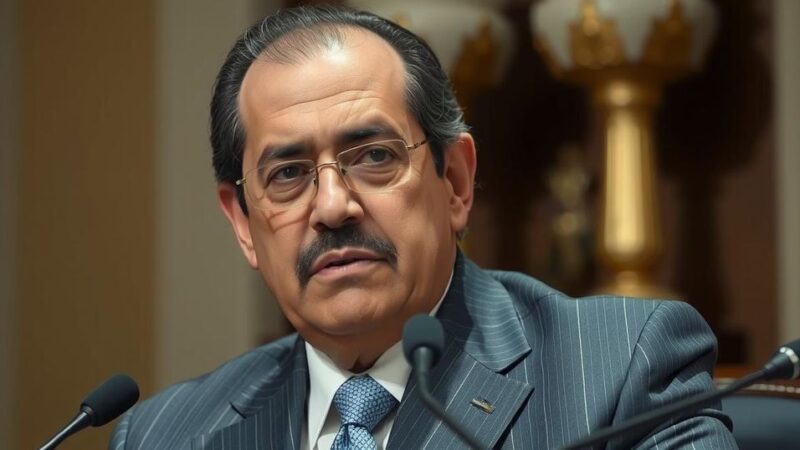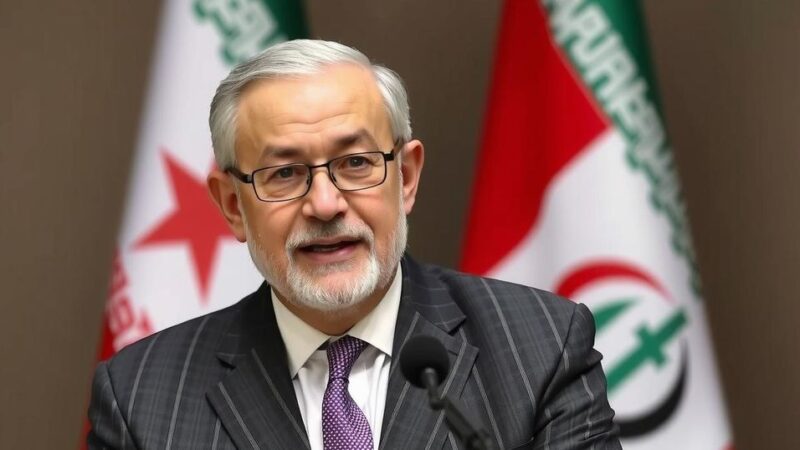The ousting of Syrian President Bashar Assad has diminished Iran’s dominance in the region and opened the door for improved ties between Lebanon and the new Syrian leadership. This change could enable Lebanon to rebuild its governance structures, while the waning influence of Hezbollah and the rise of new political dynamics pose challenges to stability.
The recent ousting of Syrian President Bashar Assad marks a significant shift in the dynamics of influence in Lebanon and the broader region. Analysis from Lebanese experts highlights that Assad’s fall diminishes Iran’s 40-year dominance in Lebanon and presents opportunities for improved relations between Lebanon and the new Syrian leadership. The fall of Assad, which took place on December 8, 2023, has elicited a welcomed response from many in Lebanon, who had long suffered under Syrian military intervention and political control.
Syria’s military presence in Lebanon began in 1976, initially intended to quell civil unrest. However, even after the civil war concluded in 1990, Syria maintained a strong presence, becoming the de facto power broker in Lebanese politics. The enforced Taef Agreement endorsed Syrian intervention, which continued unhalted until it was compelled to withdraw following the assassination of former Prime Minister Rafik Hariri in 2005. Syria’s involvement in Lebanese affairs led to numerous political assassinations and widespread suppression.
Political commentators assert that the current upheaval will lead to a re-establishment of normal relations between Lebanon and Syria. Ahmad Sharaa, Syria’s new leader, assured Lebanese officials that Syria would respect Lebanon’s sovereignty. As a result, opportunities to rebuild Lebanese institutions and governance may finally materialize after decades of interference.
The dismantling of Assad’s regime interrupts Iran’s military and political alliance within the region, impacting Hezbollah’s support and its operational capacities. Many view Hezbollah’s influence as significantly waning, particularly as Lebanon prepares for a presidential election. The ongoing transformation of Syria’s political landscape holds regional implications, as emerging powers in the West and Turkey might redefine alliances previously dominated by Iranian and Russian forces.
In essence, while the fall of Assad introduces potential for reformation in Syria, it also raises concerns regarding the emergence of Islamist factions, which may challenge Lebanon’s stability. How these political shifts will ultimately play out remains uncertain.
Consequently, the sentiment echoed by political analysts emphasizes a cautious optimism for Lebanon’s future in relation to the evolving situation in Syria, drawing parallels with historical precedents but leaving open the potential for new barriers in this transitional phase.
The article discusses the aftermath of President Bashar Assad’s removal from power in Syria and its implications for Lebanon. For decades, Syria exerted significant influence over Lebanon, leading to a prolonged military presence and political domination, which many Lebanese found oppressive. The rise of anti-Assad sentiment and subsequent civil unrest prompted a pivotal shift in regional power dynamics, particularly concerning Iranian and Hezbollah alliances. The political landscape is shifting, reshaping relationships between Lebanon and Syria, as well as altering internal Lebanese political structures amidst evolving geopolitical contexts.
The removal of Bashar Assad from power is pivotal for both Syria and Lebanon, offering a potential pathway for improved sovereign relations and political autonomy for Lebanon. While the implications of Assad’s fall may lead to enhanced opportunities for structural rebuilding in Lebanon, the emergence of new political factions, especially Islamist groups, poses a significant challenge to stability. As the Syrian political landscape continues to evolve, Lebanon’s future remains intricately tied to these developments, necessitating careful observation and adaptability in its political strategies.
Original Source: www.upi.com







